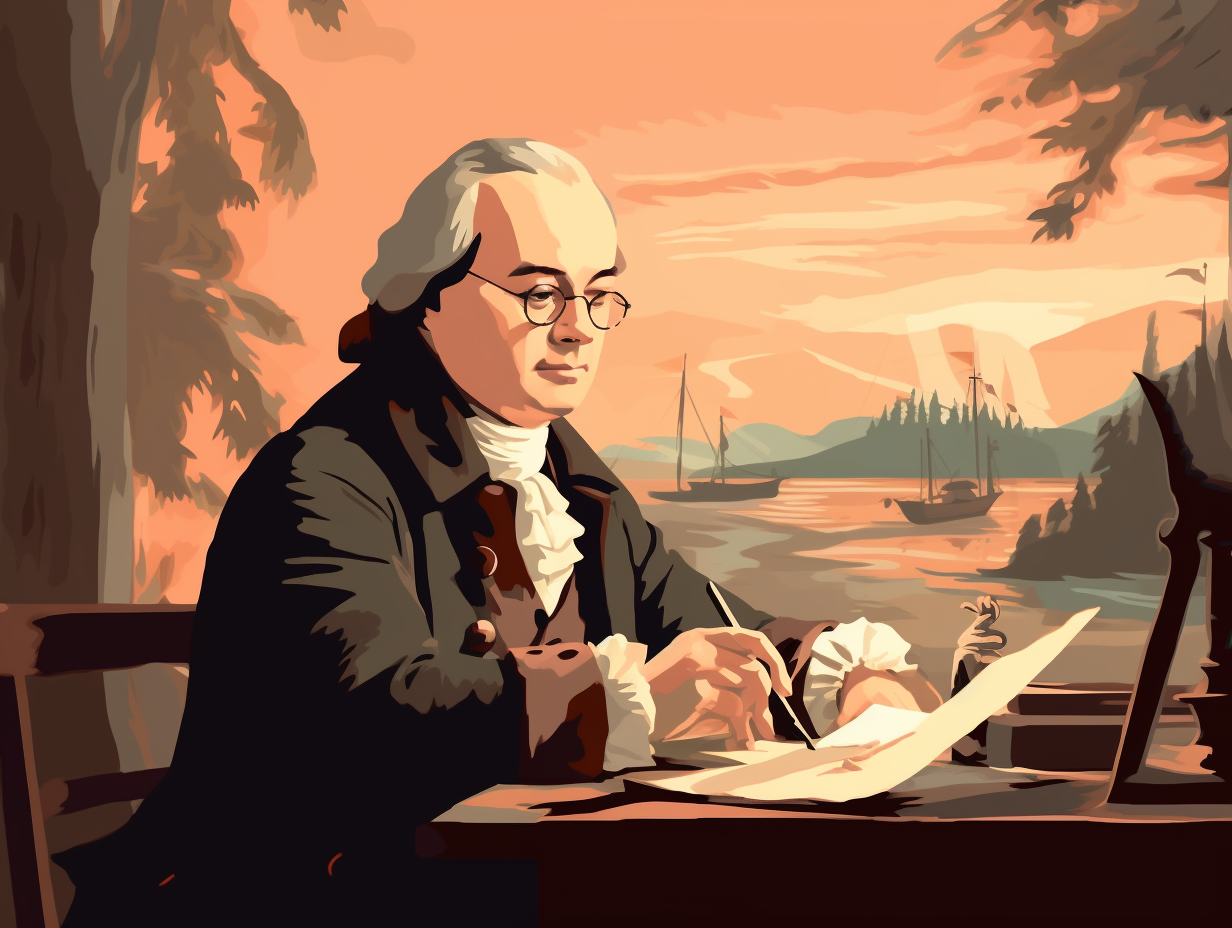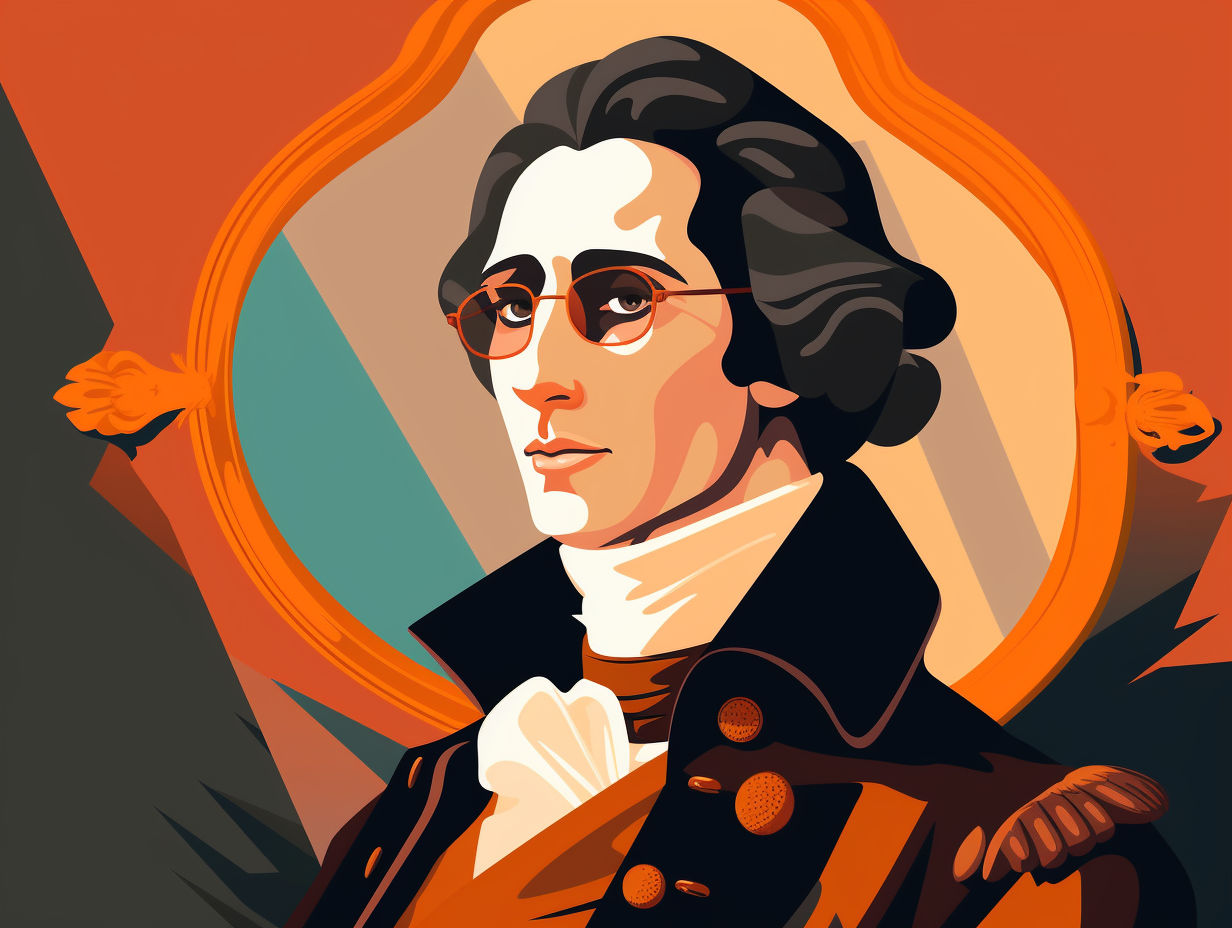Discover the 4th Amendment: 15 Surprising & Fascinating Facts You Never Knew!

1. Siege-uational Pun and Exceptions
Careful, there might be a "siege-uational" pun lurking here: The Fourth Amendment protects us from unreasonable searches and seizures, but there are warrantless exceptions like officer consent, searches during a lawful arrest, probable cause with exigent circumstances, or when items are in plain view. So, avoid making your secrets "search-pearing" with a wave of a warrant!
Source => uscourts.gov
2. British Invasion Inspires Amendment
Ready for a British invasion? This time, it won't be the Beatles rocking our world, but the English cases that inspired the Fourth Amendment of the United States: Semayne's Case and Entick v. Carrington set the stage for the privacy rights we now cherish. The colonial quest for privacy started when James Otis challenged writs of assistance – the pesky, generalized search warrants that resembled a roving TSA scanner – in 1761, which eventually paved the way to the Bill of Rights.
Source => constitution.congress.gov

Did you know James Madison was a lightweight president with unconventional sleeping habits? Find out how this founding father stayed fit and rested in a unique way! 💤🇺🇸
=> Fun Facts about James-Madison
3. Cell Phone Location Privacy Protection
Who knew our cell phones could double as Carmen Sandiego's trusty sidekicks: In the landmark Supreme Court case Carpenter v. United States, it was ruled that cell phone location information is protected by the Fourth Amendment, requiring police to acquire a warrant before accessing it. This established that individuals have an expectation of privacy even when their information is shared with third parties like cell phone providers – a "big brother" busting move right out of the digital age playbook!
Source => eff.org
4. Tin Foil Hats & Amendment Limits
Roll up your sleeves and put on your tin foil hats, folks: the Fourth Amendment isn't an all-access pass to freedom from snooping! This constitutional gem, designed to guard against unreasonable searches and seizures, does have its limits based on location and circumstances—like allowing warrantless searches if there's probable cause, or not needing warrants for school searches. That's right, the Founding Fathers have thrown a curveball to keep things interesting and maintain the delicate balance between individual rights and government interests. Voilà: public safety in style!
Source => uscourts.gov

5. Goldilocks and Fourth Amendment
Just when you thought you could live out your wildest fantasies of sneaking into people's houses like that mischievous Goldilocks searching for the perfect bowl of porridge: BAM! The Fourth Amendment swoops in like a privacy superhero! Funny thing is, it specifically protects the homes, persons, and belongings of U.S. citizens from unreasonable searches and seizures by the government, making sure they have to get their little warrant slip based on probable cause before they start snooping around. So, watch out Big Brother, you can't catch these bears off guard without some solid evidence!
Source => khanacademy.org
6. Drones and Privacy Rights
In a world where high-tech peeping Toms use drones to spy on unsuspecting citizens, one Michigan court fights back with a message for Big Brother: not today, buddy: In Long Lake Township v. Todd Maxon, the appeals court ruled that warrantless drone surveillance violates the Fourth Amendment's protection against unreasonable searches and seizures, paving the way for a future where our constitutional rights soar above the reach of prying eyes in the sky.
Source => cato.org
7. Supreme Court on Cell Phone Data
In an age where your cell phone knows more about you than your closest friends, one might say our beloved devices went from being our "smart BFFs" to unintentional "sneaky snitches" in the blink of an app: The 2018 U.S. Supreme Court ruled in Carpenter v. United States that location data held by third parties (like our clingy cell phones) is now protected by the Fourth Amendment, limiting the government's sneaky snooping powers and keeping our modern-day digital secrets safe from unjust search and seizure.
Source => brennancenter.org
8. Magical Probable Cause
You know what's criminally underrated? The magic trick of pulling probable cause out of nowhere, like a bunny from a judicial hat: In the Fourth Amendment, "probable cause" is a key component but is actually nowhere to be found in the amendment itself or federal statutes – it's solely a judge-made concoction! To make that rabbit appear, applicants must present enough compelling evidence for officers to decide there's probable cause, all based on real-world practicality and not legal mumbo jumbo. Just like a bemused audience, as long as there's a solid foundation for the trick, reviewing courts will keep clapping along with the illusion of probable cause.
Source => constitution.congress.gov
9. Fruit Ninja and 4th Amendment
Don't go "fruit" ninja on evidence collected illegally: The Fruit of the Poisonous Tree doctrine bars evidence obtained in violation of the Fourth Amendment from being used in criminal trials, and any information derived from tainted evidence is also off limits. Four exceptions do exist, though: an independent source, inevitable discovery, an intervening act of free will, and good faith in obtaining the evidence. Slice and dice logical loopholes with a criminal defense attorney if you're ever facing charges!
Source => lacriminaldefenseattorney.com

10. Airport Search 4th Amendment Compliance
Next time you fly, be thankful your underwear isn't being examined by a judge: Airport searches must adhere to the Fourth Amendment, meaning they require a search warrant, consent, or specific circumstances like a positive magnetometer indication to be considered legal and constitutional.
Source => ojp.gov
11. Curtilage Chronicles & Cops
Did you know that lurking around your house could get the cops in trouble? Welcome to the Yard-Serious Four: The 4th Amendment Curtilage Chronicles: The United States Supreme Court established four factors to determine a home's curtilage - distance from the home, whether it's enclosed, its purpose, and steps taken to shield it from observation - which law enforcement officers must bear in mind when peeking around your dwelling, and when in doubt, go for the good old search warrant.
Source => ojp.gov
12. Dog Sniffs and Vehicle Searches
Next time you're pulled over, remember: your car isn't just a vehicle for transporting you and your snacks, it's also a beacon for crime-finding canines! But don't worry, Fido's fancy sniffs won't necessarily give them the right to search: In the 2005 Illinois v. Cabales case, it was established that using a narcotics detection dog to walk around the exterior of a car during a traffic stop does not automatically grant officers reasonable suspicion to search the vehicle.
Source => uscourts.gov
13. Privacy Test and Walls that Talk
If the walls could talk, they'd be begging for their Fourth Amendment rights from Justice Harlan! Well, they may not need to, as long as they nail that Reasonable Expectation of Privacy Test: Cooked up by Justice Harlan in Katz v. United States, this two-course test not only checks if the quirky individual thought they deserve some privacy, but also if society backs up their plea for personal space. Pass both tests, and ta-da! The government shall be deemed the party-pooper, violating those treasured Fourth Amendment rights.
Source => law.cornell.edu
14. Fourth Amendment Meets Tech Sorcery
Much like an old wizard with a smartphone, the Fourth Amendment has had to adapt to the mystical world of modern technology: Key Supreme Court cases like Riley v. California in 2014 and Carpenter v. United States in 2018 have expanded its protections to include warrantless searches of cell phones and historical cell-site location records, transforming the sorcery of privacy into a 21st-century spectacle.
Source => brennancenter.org

15. Fourth Amendment Superhero Origins
In an era where Big Brother would’ve lost his marbles and everyone was fearfully whispering "I spy with my little eye," the Fourth Amendment swooped in like a much-needed superhero: It was drafted in response to the rampant privacy invasions in England and the American colonies, where officials had the power to search people's belongings without any legit reason, or even go on wild goose chases for untaxed items. Thanks to the Fourth Amendment, our privacy is protected by requiring every search and seizure to be authorized by a judge before it can take place. So breathe easy, fellow Americans!
Source => reaganlibrary.gov
Related Fun Facts




















